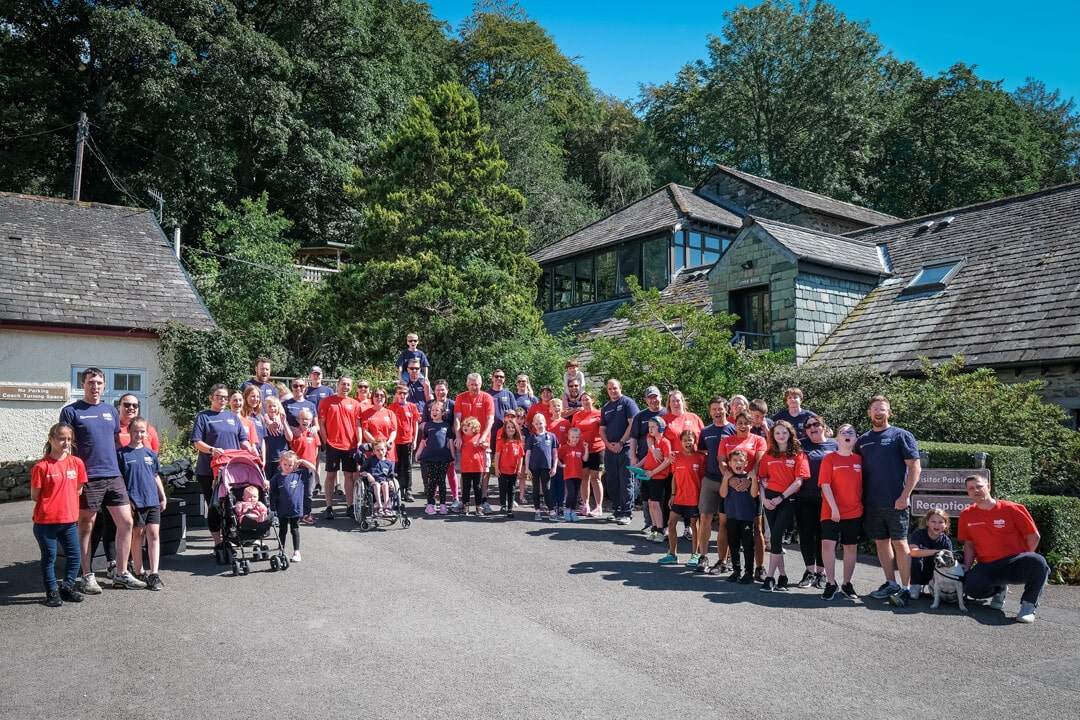The majority of disabled people are abandoning plans for outdoor activity breaks due to the cost-of-living crisis – at huge cost to their physical and mental health.
A new report by Calvert Lakes – a residential outdoor centre delivering challenging outdoor adventure breaks for people with disabilities – reveals that 55% of disabled people will forsake outdoor activity breaks in 2023 due to financial concerns. Even more alarmingly, 93% believe this will impact on their physical health and 92% believe it will impact on their mental health.
In total, the Lake District Calvert Trust received responses from 432 schools, adults, carers and charities.
Commenting on the findings, Sean Day, Centre Director for the Lake District Calvert Trust said: “This research is extremely alarming. First and foremost, the majority of our visitors are disabled children. For children and young people with special educational needs and disabilities, outdoor physical activity has a fundamental role in their development.”
“It is widely accepted that the Covid-19 pandemic disproportionately impacted disabled people,” added Sean.
“The Office for National Statistics has also confirmed that disabled people in the UK are being hit even harder by the cost-of-living crisis than non-disabled people.
“If disabled people cut back on outdoors activities due to financial pressures their physical and mental health will suffer.”
To combat the financial pressures facing visitors, the Lake District Calvert Trust utilises bursary money awarded by generous benefactors. This funding is, where possible, passed on to guests, enabling those who require financial assistance to receive a percentage of the total cost of their break.
“Bursary funding forms an integral part of our operation and enables us to offer help to people with disabilities who without it would not be able to take part in the specialised activities we provide,” continued Sean Day.
“With the cost-of-living crisis, demand is higher than ever as many schools, families and individuals struggle to fund that extra dimension to their lives that can make all the difference.
“Prices at the centre are subsidised by our own fund-raising efforts, but are still beyond the means of some organisations, families or individuals who would not be able to attend without the extra help from bursary funding. This has become of paramount importance in the current national situation. Our ability to continue to provide much needed respite, and a safe and secure place for people with disabilities to enjoy the unique services we provide, has never been more important.”
Case study
New Bridge School is based in Oldham in Lancashire and the Learning Centre is for students aged 16 to 19. The school visited Calvert Lakes earlier this year with a group of 48 made up of staff and students. At the heart of the school’s mission is the belief that all their pupils, whatever their background or ability, will be successful and valued. They strive to enable all their students to become as independent, confident, and resilient as possible, and to reach their desired destinations.
New Bridge have been regular visitors to Calvert Lakes for over ten years and Duke of Edinburgh Manager for the school Gavin Taylor explained in their application why they need bursary support saying: “Our learning centre serves students from Oldham, where levels of deprivation are among the highest in England: four areas in the borough are in the top 1% of the nation’s most deprived areas. Many of our students are from families experiencing social or economic disadvantage, for whom residential experiences such as this are simply unaffordable. The bursary will help to make the residential affordable and accessible to more of our students.”
Gavin went on to say: “For most students attending, this is their only opportunity to enjoy fun and challenging activities, with their peers, away from home. The costs of short breaks are prohibitive for most of these families, while the challenges of providing care, ensuring medical needs are fully met, and managing difficult behaviours in an unfamiliar environment pose significant additional barriers.”
Students at the special school have autism spectrum disorder, hearing and/or visual impairment, and complex and multiple disabilities. Most access very little outside of their home environment, with the college often providing the only opportunities for exercise, wellbeing, and social experience and development. The students need regular supervision and often direct physical support, due to poor social skills, impulsive behaviours, and lack of perception of dangers. There are several students who also need support with feeding, movement, personal care, regular medication, and specialist equipment. The nature of many of the disabilities often impacts on the well-being and mental health of the parents and carers which ultimately creates difficulties in the home environment.
Gavin explained why Calvert Lakes was so important to the students saying: “We know from our past experience of the Calvert Keswick centre that the quality and flexibility of the support provided will enable our staff to give their undivided attention to individual young people’s needs, ensuring they derive maximum benefit from this opportunity to enjoy exciting new experiences with friends in a stimulating but safe and well-managed environment.”
New Bridge students enjoyed several sessions in Calvert Lakes’ indoor hydro-therapy pool, canoeing on Bassenthwaite Lake, indoor climbing, cycling, and a visit to the stables, as well as walking in the local countryside and bushcraft.
The bursary funding made it affordable for more students and additional support staff were able to attend making it safer.
Gavin stated in their post visit evaluation: “Our stay has allowed our students to become more independent, managing themselves and allowing them to interact with new and exciting experiences.”
Ends
